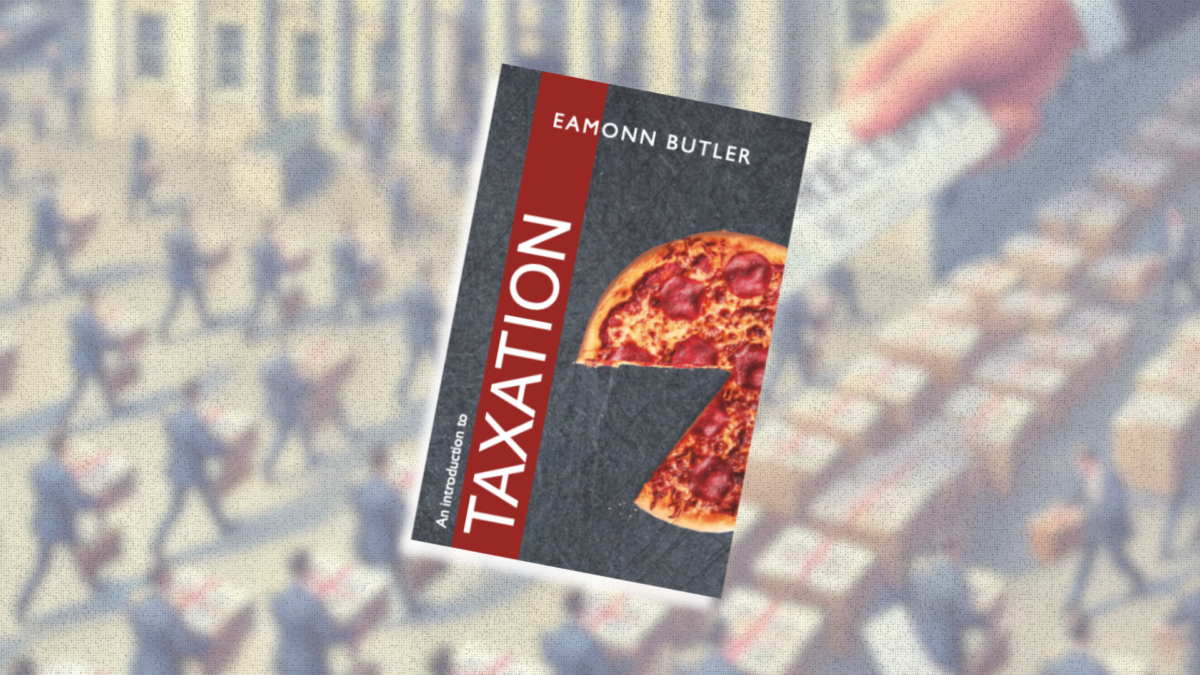Tax rethink needed to boost growth, highlights new IEA book
SUGGESTED



- Taxation may be necessary to fund public services, but policymakers must consider its moral and economic costs.
- Most taxes are overly complex, politically skewed, and often cause more economic harm than good.
- Corporation and capital gains taxes are the most damaging, followed by transaction (like Stamp Duty), income and payroll taxes.
- Broad-based consumption and land taxes, followed by co-payments and Pigovian taxes, are the least damaging.
- Tax reform and reductions require restraining government spending.
A major rethink on taxation is needed, according to a new primer published by the Institute of Economic Affairs. This comes as the United Kingdom’s tax burden reaches a seventy-year high and is set to rise further in the new Parliament.
In An Introduction to Taxation, economist Dr Eamonn Butler investigates the moral case against excessively high taxation, the taxes that cause the most and least harm, why taxes are often poorly designed, and alternative ways to fund public services.
He stresses that while taxation might be necessary to fund essential government services and correct market failures, the current system is often unfair, uncertain and inefficient. He proposes reforms to boost growth by emphasising taxes with low rates, broad bases and limited distortions.
Butler is particularly critical of capital gains tax, which reports indicate the new Labour government could increase in a forthcoming budget. He says taxing capital gains discourages savings and investment, resulting in lower productivity, wages, and growth.
A study found that increasing top capital gains tax brackets would reduce GDP in the US context. The book is also heavily critical of corporation taxes and transaction taxes like stamp duty, which Butler says are the most likely to discourage growth.
The book challenges the notion that progressive income taxes are always fair or beneficial. Butler points out that high marginal rates on top earners can reduce tax revenue through avoidance or decreased economic activity. A study found that raising the top income tax rate would reduce total GDP by almost three times the revenue raised.
Weighing into the debate about high taxes, Butler points to the “Rahn Curve,” which shows that beyond a certain point, more government spending financed by taxes leads to weaker growth. A study found that a 1% rise in marginal tax rates leads to an 8% reduction in patents filed by top inventors.
Butler also asks whether it is right to “force people to live with the dismal thought they are funding things they believe are wicked, even murderous”. For example, pacifists are required to pay for the military. “Taxation may be necessary, but it still relies on the use of force,” stressing the moral case for keeping taxes as low as possible.
The book concludes by exploring alternatives to taxation for funding essential government services, such as user fees, private provision, and better utilisation of state assets.
Butler argues that by reducing the overall tax burden and redesigning the system, economies could unlock significant growth potential, benefiting both public finances and individual prosperity.
Dr Eamonn Butler, Director of the Adam Smith Institute and author, said:
“Our tax system is over-complicated, ill-targeted, generally unfathomable, and costly for people to comply with. We need to look at the whole picture, and make taxes simpler, more intelligible and above all, less damaging to enterprise and growth.
“The new UK government appears set to raise taxes once again. But politicians should beware that many of the politically easiest taxes to raise, such as taxes on capital and on businesses, are actually the most damaging. We need a complete review of which taxes do most harm, and steer clear of them.
“We all know taxes are a necessary evil, but they are still an evil. They invariably have unforeseen damaging consequences on enterprise and economic growth and can put a disproportionate burden on people who are less able to bear it. And there can be ethical issues in how they work too.”
ENDS
Notes to Editors
Contact: media@iea.org.uk / 07763 365520
Read a copy of An Introduction to Taxation.
An Introduction to Taxation has been translated into in Spanish and Arabic.
Eamonn Butler is Director of the Adam Smith Institute, one of the world’s leading policy think tanks. He holds degrees in economics and psychology, a PhD in philosophy and an honorary DLitt. In the 1970s he worked in Washington for the US House of Representatives, and taught philosophy at Hillsdale College, Michigan, before returning to the UK to co-found the Adam Smith Institute. He has won the Freedom Medal of Freedoms Foundation at Valley Forge, the UK National Free Enterprise Award and the Hayek Institute Lifetime Achievement Award; his film Secrets of the Magna Carta won an award at the Anthem Film Festival; and his book Foundations of a Free Society won the Fisher Prize.
Eamonn’s other books include introductions to the pioneering economists Adam Smith, Milton Friedman, F. A. Hayek and Ludwig von Mises. He has also published primers on classical liberalism, public choice, capitalism, democracy, trade, economic inequality, the Austrian School of Economics and great liberal thinkers, as well as The Condensed Wealth of Nations and The Best Book on the Market. He is co-author of Forty Centuries of Wage and Price Controls, and of a series of books on IQ. He is a frequent contributor to print, broadcast and online media.
The mission of the Institute of Economic Affairs is to improve understanding of the fundamental institutions of a free society by analysing and expounding the role of markets in solving economic and social problems. The IEA is a registered educational charity and independent of all political parties.



